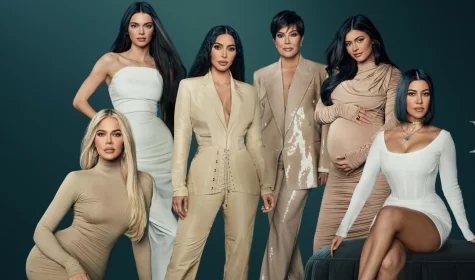NCAA rule changes benefits college athletes

Photo courtesy of Wikimedia Commons
The topic of college athletes getting paid has heavily circulated over the past few years, especially with a lot of controversy surrounding a popular youtuber, Donald De La Haye, also known as “Deestroying.” De La Haye lost his college scholarship as a kicker because of his Youtube channel. His Youtube channel began to gain popularity; however, eventually, the National Collegiate Athletic Association (NCAA) found out that he was beginning to make money off of his channel. The NCAA quickly forced a tough decision on De La Haye: quit Youtube or lose his scholarship. De La Haye chose the latter. Ever since, he has been happier posting content on Youtube, although not being recruited by any professional football teams.
Another similar story occurred back in 2017, with former Notre Dame quarterback Brandon Wimbush. His name and picture were used in the news the entire week before his big game against the University of Miami Hurricanes; yet not a single penny was paid to him. Everyone used his name, image and likeness without Wimbush receiving any compensation. The stories of De La Haye and Wimbush have been very popular in the context of college athletes receiving pay, and, recently, some major changes have been made benefiting college athletes.
A big part of teenagers’ lives nowadays is social media. By not being able to monetize posts, the incentive for these athletes to post significantly decreases. As a result, these athletes are expressing themselves less than they would without these resrictions
Back in 2021, on Sep. 15, a ruling was settled by the NCAA. As of Feb. 18, 2022, 28 states have passed the “Pay to Play Act;” according to Book and periodical publishing company JD SUPRA, this act allows college athletes to secure endorsements and sponsorships without losing college eligibility. Consequently giving athletes control over the marketing of their names and images. This is obviously very beneficial for college athletes. The act essentially means that college athletes are allowed to sign deals with companies without risking the loss of their scholarships, and on top of that are allowed to make money off of social media. For example, college athletes can now upload to Youtube, make money off of it and keep their scholarship, contrary to the situation De La Haye experienced. This proves that the NCAA is finally listening to their athletes, and that the rules are finally changing after harsh policing on athletes making money. In an interview with Sedona Prince, a college athlete playing for the women’s basketball team at the University of Oregon, De La Haye states “It’s amazing to finally see y’all get what you guys deserve and be able to make some money off your name, image and likeness.” While many people believe that college athletes deserve to be allowed to make money and express themselves, some people still disagree.
Before recent rule changes, NCAA athletes could not have jobs during their sports season. So, they relied on other ways to make money. Many athletes hope to get sponsored by a popular brand such as Nike or Under Armour. However, college athletes were not allowed to make money through sponsorships before the “Pay to Play Act” was passed, meaning that athletes like NCAA women’s basketball champion Aaliyah Boston would not be allowed to have that sponsorship this time last year. Without these sponsorships it would be significantly more difficult for college athletes to pay off their college tuition without these sponsorships, especially if they pursue careers in sports that are not as well paying as the NBA and NFL.
Even after the “Pay to Play Act” was passed, many remain upset with the ruling. Many people believe that college players deserve to have the right to make money off of their name. Athletes put their body and mental well-being on the line throughout college each day, whether it be at practice, in the classroom or at events. After all the time these athletes spend working every single day, this is the least each state can do for them. On top of that, college is not getting any cheaper. The yearly cost of a 4-year college is up to $35,331, according to the Education Data Initiative. Compared to how it used to be a few years ago, a lot has changed. Athletes can now properly express themselves through social media, unlike De La Haye a few years ago. It is good to see each state passing the “Pay to Play Act,” as it shows that they are taking steps in the right direction, and will hopefully continue with this trajectory to help NCAA athletes excel in their sports and in their lives.







